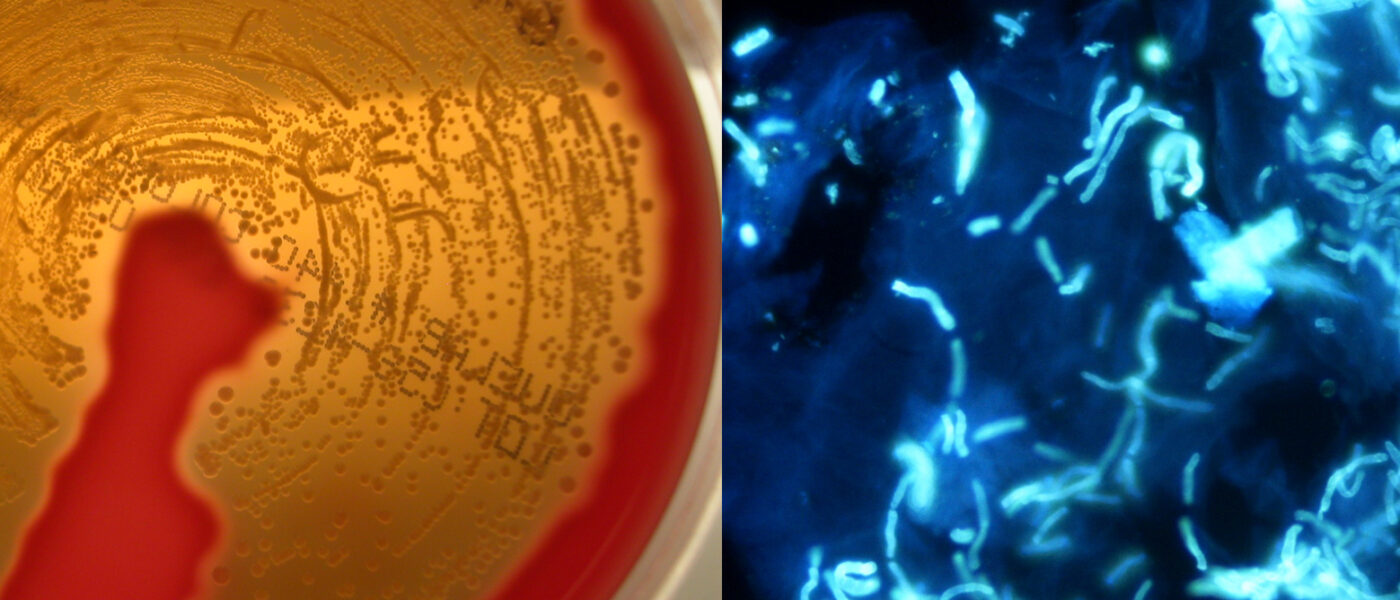INFECTIOUS DISEASES
Residency Program at McMaster
Welcome to the Infectious Diseases Residency Training Program
The Division of Infectious Diseases at McMaster University is a vibrant, collegial and academic division within the Department of Medicine. The Division of Infectious Diseases seeks to educate active minds in the fields of infectious diseases and medical microbiology. We consider infectious diseases knowledge to involve a continuum of educational experiences, from the undergraduate MD level through residency training, and finally involving research and clinical scholarships. As such, we offer and support educational experiences at all levels of training.
Welcome
The Adult Infectious Diseases Training Program is a two-year program accredited by the Royal College of Physicians and Surgeons of Canada (RCPSC). The program involves all four sites within the city, including McMaster Campus of Hamilton Health Sciences (HHS), the Hamilton General Hospital, the Juravinski Hospital and St. Joseph’s Healthcare, providing a rich and varied experience in Infectious Diseases training. Pediatric training is available at McMaster Children’s Hospital and at Hospital for Sick Children in Toronto. The Infectious Diseases residency has close ties and a shared curriculum with the McMaster University Medical Microbiology Program.
Trainees gain broad exposure to inpatient and outpatient infectious diseases, Infection Control, Antibiotic Stewardship and Medical Microbiology. The curriculum is tied to all CANMEDS competencies endorsed by the RCPSC. Infectious diseases are anticipated to begin Competency By Design by 2022.
Throughout the program, residents work closely with ID and medical microbiology physicians whose interests span diverse areas of clinical infectious diseases, clinical research, and basic research. Basic science teaching is incorporated whenever possible into all aspects of laboratory and clinical training. Biostatistics and critical appraisal are emphasized throughout the teaching program and especially in the Fellows’ Journal Club. All rotations, as well as Multidisciplinary Academic Half-Days, address ethical issues. Quality control and quality assurance are covered in the laboratory, clinical as well as research rotations and a large number of our faculty members have postgraduate degrees in Health Research Methodology.
Entry Requirements
Candidates must have Royal College Internal Medicine certification to sit for the Infectious Diseases exam. Please see the Canadian Residency Matching Service (CaRMS) for full details.
Application Deadline
Please see the Canadian Residency Matching Service (CaRMS) website for full details.
Program Overview
The Infectious Diseases residency consists of 26 blocks over 2 years. Each block is 4 weeks long.
Royal College Requirements (updated 2024) include:
- Inpatient experience: 12 blocks minimum that includes 8 blocks of adult inpatient service of which 2 blocks must be at a Junior Attending level and 2 blocks of inpatient pediatrics. A minimum of 1 block of pediatrics must be done at McMaster.
- Residents rotate for 2 blocks each at the Hamilton General Hospital, Juravinski Hospital (General ID service) and St. Joseph’s Hospital.
- Longitudinal clinic experience:
- PGY4: General ID continuity clinic (September-June).
- PGY5: A minimum of 3 different subspecialty clinics each meeting at least weekly over a 3-month period.
- 3 blocks of medical microbiology:
- 1 block bacteriology.
- 1 block combined mycology and parasitology.
- 1 block combined virology and molecular diagnostics.
- 3 blocks of infection prevention and control and antibiotic stewardship.
- 1 block of public health and preventive medicine.
- 1 block of HIV
- The remaining blocks are divided amongst electives (maximum 4 blocks), community experience, transplant experience and research (maximum 5 blocks). Residents may tailor their programs to support their career interests. Final schedules must meet Royal College criteria and be approved by the Program Director or delegate.
What the trainee is expected to be competent in after completion of training
The mission of the McMaster Infectious Disease Program is to train residents who will demonstrate competency in the diagnosis, investigation, and management of infectious diseases at the level of a consultant. The resident will master critical analysis of the scientific literature and apply it, in order to provide high-quality, compassionate patient-centred care, and to maintain lifelong learning skills. Residents will understand that, in the field of infectious diseases, there may be more than one approach to any given problem and will learn how to look at available literature to make an informed decision for a specific patient. Residents will develop a multidisciplinary approach and foster interactions with other health professionals involved in infectious diseases including the microbiology laboratory, Infection Prevention, and Control, Antimicrobial Stewardship and Public Health.
More Opportunities
- The Infectious Diseases Residency Training Program may offer combined training in Medical Microbiology with the addition of one year of training for interested residents.
- Clinical scholar year (by a competitive process).

